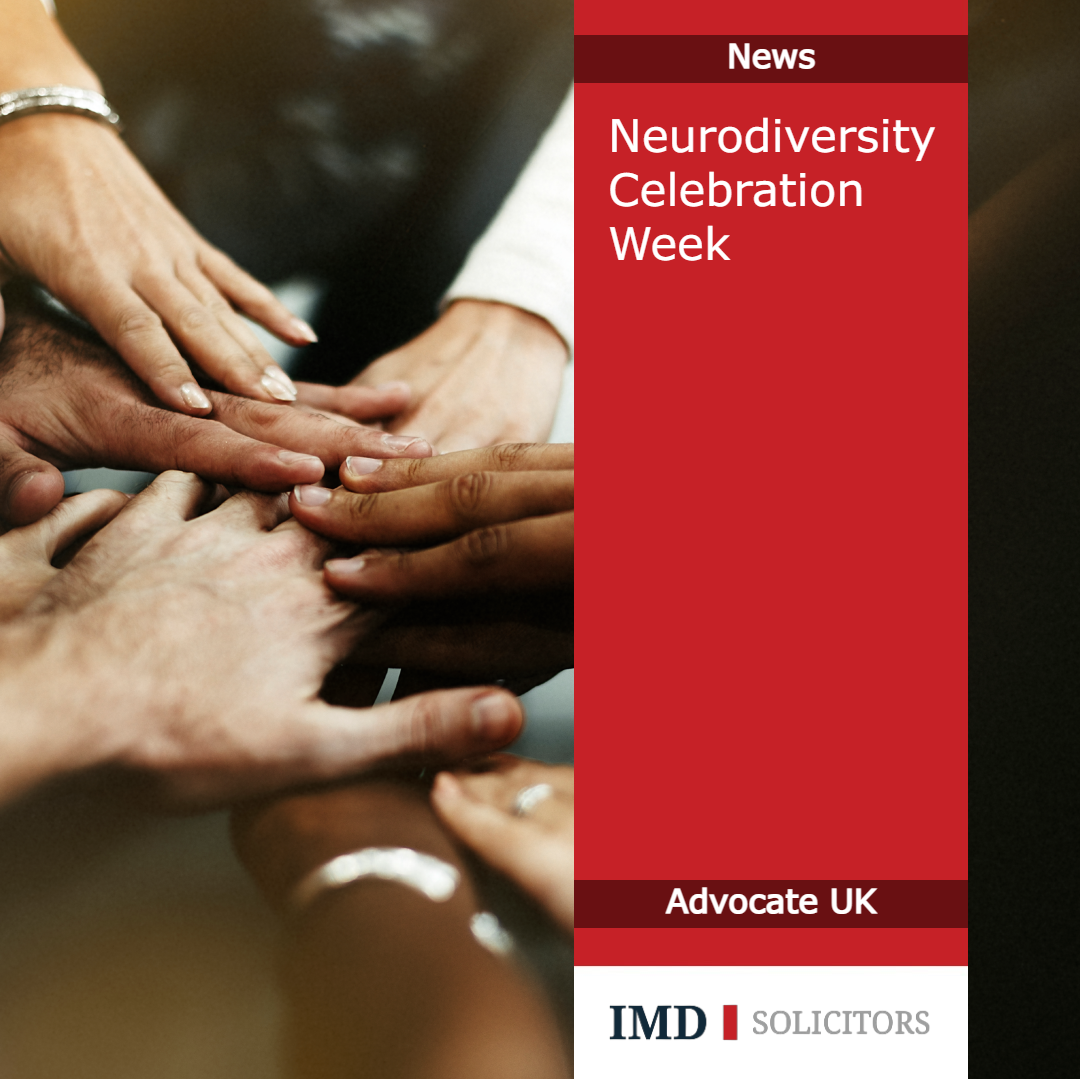
We are all different. Or, we are all diverse in many different ways. Both our teammates and clients are of different backgrounds, live in different countries, and speak different languages. Our purpose at IMD is to connect diverse communities and help minorities thrive, not only by providing legal services and assisting in international matters, but also by marking diversity and differences among us.
Between 13th and 19th of March 2023, we will be supporting Neurodiversity Celebration Week, being a worldwide initiative that challenges stereotypes and misconceptions about neurological differences.
Difference. The word of Latin origin that meant “carrying away”, “spreading”, “scattering”, “dispersing” or “separating”. Similar to diversity or diverse which ages ago could be translated as “turning away” or “separating”. Perhaps, this is the reason for all the negative connotations. Perhaps, this is the time to embrace the fact that although we are all different and diverse, that is no longer a good reason to indeed turn away or separate.
Too many of us experienced rejection due to colour of their skin, gender, sexual orientation, religious beliefs or lack thereof, disabilities, age, or ethnical background. Most of these are now protected characteristics, meaning that if someone is discriminated against because of one of these at work, the person can claim compensation at the Employment Tribunal in the UK.
In short, neurodiversity refers to neurological differences among people and experiencing the world around in many different ways when it comes to learning, thinking, socialising, communicating et cetera. The term is often used as an “umbrella” word to encompass those within an autism spectrum, or experiencing dyslexia, dyspraxia, or ADHD. The list is by no means exhaustive. Neurodivergent individuals may behave differently than those neurotypical. Although no two neurodivergent persons are the same, and even if they are autistic we need to remember they are within a spectrum, there are some common features they usually share. However, please remember that these are only examples of behaviours, and the aim of this note is to help you to understand why people may act in certain ways, and not to reinforce stereotypes.
For instance, they are often sensitive when it comes to sound, smell, taste, or feel. Neurodivergent people may struggle to stay in a place that is too loud or too bright for them.
Usually, they will think in a logical way. Example? They prefer open and direct communication than mincing their words, not because they are rude or want to hurt, but because their aim when speaking is to convey their idea or thought, and they want to do it in the most efficient way. In some cases, they will simply not understand sarcasm or something you are saying in between the lines.
Some of them may struggle to adapt to rules they consider wrong, and some may suffer from learning disabilities. They are also likely to be not that good in socialising, and may have problems with eye contact, or holding a conversation. Small talk? Better not (for some people, in particular those within a spectrum, there is simply a lack of logic in having those).
On the other hand, they may enjoy engaging in long discussions on topics important to them. They are likely to have narrow, specific interests (by some called “fixations”). One of the most common feature of autistic people, for example, is an innate strong sense of justice, so they are usually very sensitive to harm that happens to them, other people, or animals. Some consider autistic people or those with ADHD as very loyal friends, as well.
People with ADHD, for example, experience a state of hyperfocus which is a state of intense concentration, and they can be very proactive. On the other hand, they may get easily distracted. Autistic people often find it difficult to adapt to a change in their life or environment. Those with dyspraxia will experience challenges related to movement and coordination, however, they are often thought to be strategic thinkers. Dislectics may struggle with information-processing and develop language difficulties. However, they can be creative, and have excellent problem-solving skills.
Of course, there is no ideal neurodivergent person who will be a perfect combination of all of the above, just as there is no perfect neurotypical person.
Neurodiversity Celebration Week is a great opportunity to learn how we may differ, and we are marking the occasion at IMD. It comes all to be kind and respectful, and… communicate openly and freely.
This article is for general information only and does not constitute legal or professional advice. Please note that the law may have changed since this article was published.